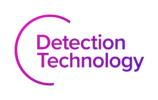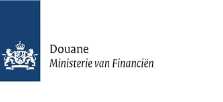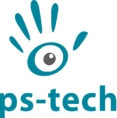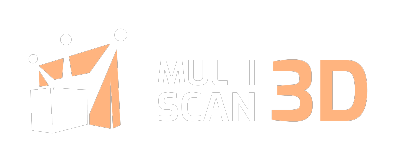CEA

CEA is the French Alternative Energies and Atomic Energy Commission, a leading European RTO with almost 20 000 employees and 9 centres in France. CEA is active in four main areas: low-carbon energies, defence and security, information technologies and health technologies. Through the DRT (Division of Tehnology), CEA’s three institutes (LETI, LITEN, and LIST) develop a broad portfolio of technologies for ICTs, energy, and healthcare. CEA List (Laboratory for Integration of Systems and Technologies) is a research Institute specialised in software systems and technologies with vital societal and economic implications. It is part of the dynamic and challenging environment of the University Paris Saclay. CEA List counts more than 700 researchers, engineers and technicians, they perform research work in partnership with the major industrial players in the nuclear, automotive, aeronautical, security and defence and medical fields and thus investigate and develop innovative solutions corresponding to their requirements. On its side, the Division of Energies (DES) provides public authorities and manufacturers with the elements of expertise and innovation for the implementation of a low-carbon energy system. With an integrated approach to the energy system, CEA DES is interested in all low-carbon energy production methods (nuclear energy, renewable energies), their interactions within the network (storage, management, conversion), the issue of resources in a closed material cycle logic, while considering the technical, economic, societal and political dimensions.
Contact :
Mr Guillaume Sannié
guillaume.sannie[@]cea.fr
+ 33 1 69 08 51 88
ATOMKI

The Institute for Nuclear Research (ATOMKI) is the leading institution in nuclear research in Hungary. One of the missions of the institute is development of nuclear methods for applications in broad range of interdisciplinary sciences and practical fields. ATOMKI is an associated member of the University of Debrecen since 2000, training numerous MSc and PhD students every year. The Laboratory of Nuclear Physics has internationally recognised expertise in the field of development and operation of large volume low-energy neutron detectors with real-time neutron–gamma discrimination.
Contact :
- Dr Andras Fenyvesi
- fenyvesi.andras[@]atomki.hu
- +36 52 509 273
Belgian Customs

Federal Public Service Finance (FPS Finance) – Belgian Customs and Excises, carries out various tasks in the field of taxes, finances, etc. The Customs authorities are in charge of protecting the society, promoting the international trade with the control of external borders and ensuring the security of the logistics chain. To carry out these tasks the Belgian Customs and Excises work both at the national and international level with other FPS and law enforcement services, mainly in the fields of the fight against fraud, organized crime and terrorism.
DEETEE

For people’s safety and health, Detection Technology equips X-rays with quality detector solutions and services. Its trusted solutions are the first choice for security, industrial, and medical imaging. The company offers off-the-shelf and customized detectors for original equipment manufacturers (OEMs) and system integrators. The solutions range from sensor components to optimized detector subsystems with ASICs, electronics, mechanics, software, and algorithms. It has sites in Finland, China, France, and the US. The company’s shares are listed on Nasdaq First North Growth Market Finland under the ticker symbol DETEC. www.deetee.com
Contact :
- Mr. Carlos Castillo Mateos
- carlos.castillo[@]deetee.com
- +358405411749
Dutch Customs Laboratory - Ministerie van Financiën

The Customs administration of the Netherlands in one of the 27 EU Customs authorities. These authorities are primarily responsible for the supervision of the Union’s international trade and are required by law to put measures in place aimed, at the following:
- protecting the financial interests of the Union and its Member States;
- protecting the Union from unfair and illegal trade while supporting legitimate business activity;
- ensuring the security and safety of the Union and its residents, and the protection of the environment, where appropriate in close cooperation with other authorities; and
- maintaining a proper balance between customs controls and facilitation of legitimate trade.
Contact :
- Mr Micha Slegt
- m.slegt[@]douane.nl
FMTC

FTMC is the largest state research institution in Lithuania with about 650 employees, including 300 PhD and 80 PhD students in 18 departments. ISO 14001 certified since 2007 and ISO 9001 certified since 2009. The Department of Laser Technologies has been established in 2004 for the development and implementation of laser technologies and consists of 7 laboratories: optical coatings, micro-optical components, solid-state lasers, fibre lasers, plasmonics and nanophotonics, laser microfabrication technologies, 3D technologies and robotics. Staffs include 32 researchers with PhD degree, 18 PhD students and 16 engineers and technicians.
Contact :
- Dr. Gediminas Raciukaitis
- gediminas.raciukaitis[@]ftmc.lt
- +370 687 25672
In Extenso Innovation Croissance

IEIC is a French entity specialized in innovation management and with contact points in every European country. Founded in 2002, IEIC’s core mission is to accompany innovative organisations in effectively developing and achieving their innovation and sustainability goals and solutions – based on creative, high quality and scientifically robust approaches. Dedicated sustainability experts work across a diverse range of economic sectors and actors, including SMEs and start-ups, at all levels of governance from the local, national and international context and covering a wide range of key thematic areas from evaluation of existing environmental strategies and policies to the development of customised tools and solutions for individual companies.
Contact :
- Mrs Clothilde Plaisant and Mrs Margaux Faure
- clothilde.plaisant[@]inextenso-innovation.fr /or/ margaux.faure[@]inextenso-innovation.fr
- +33 6 17 50 70 58
LOA - CNRS

The Laboratoire d’Optique Appliquée (LOA (CNRS)) is a pioneer of high-intensity, ultrashort laser pulses. Its activities are centered on the development and applications of intense femtosecond laser sources, the physics of laser-plasma interactions and the production of compact sources of radiation and energetic particles. Two groups of LOA (CNRS) are involved in the MULTISCAN project, the UPX group which is devoted to the study of secondary sources at high laser intensity and the APPLI group which develops high repetition-rate laser-plasma electron accelerators. These two groups are internationally recognized as leaders in laser-plasma acceleration.
Contact :
- Mr Cedric Thaury
- thaury[@]ensta.fr
- + 33 1 69 31 99 18
LMU

LMU is one of Germany’s largest research and teaching universities, and its 50 faculty members maintaining an active research portfolio. LMU’s main expertise in the context of this project lies in the reproducible generation of ultrahigh-charge, relativistic electron bunches from a laser accelerator and their conversion into brilliant X-ray sources. The LMU group have pioneered stable laser-wakefield acceleration (LWFA), generation of XUV undulator radiation from an LWFA, nonlinear, tuneable Thomson source from an LWFA, and phase-contrast tomography with betatron X-rays from an LWFA, as well as recently quasi-monochromatic electron bunches with bunch charges of > 1 nC and total bunch energies approaching 1 J. Finally, we are pioneering multi-color X-ray generation from a single electron accelerator.
Contact
- Prof. Dr. Stefan Karsch
- Stefan.Karsch[@]physik.uni-muenchen.de
- +49-89-289-14040
UKRI - CLF

The Central Laser Facility (CLF) located at the Rutherford Appleton Laboratory (RAL) is a department within the Science and Technology Facilities Council (STFC) of the UK Research and Innovation (UKRI) that was launched on 1st April 2018. STFC is a world-leading multi-disciplinary science organization, employing > 1900 staff, whose research seeks to understand the Universe from the largest astronomical scales to the tiniest constituents of matter, yet creates impact on a very tangible, human scale, providing over 16,000 postgraduate training days each year at its facilities and departments across a range of disciplines. The CLF also provides a wide range of experimental support capabilities from state-of-the-art diagnostics, target fabrication laboratories, simulation capabilities and engineering support.
Contact:
- Dr. Hamad Ahmed
- hamad.ahmed[@]stfc.ac.uk
- +447871732523
Smiths Detection

Smiths Detection, has an international reputation in developing, manufacturing, maintaining X-ray imaging systems for security and customs applications. Smiths Detection has delivered over 60 000 conventional X-ray systems and more than 500 large volume non-intrusive inspection systems. These X-rays imaging system configurations with respective energy levels ranging from 300kV to 9MeV Dual View are fielded worldwide to support customs missions through non-intrusive inspection of containers and vehicles since 1991.
Contact:
- Dr. Serge Maitrejean
- serge.maitrejean[@]smithsdetection.com
- + 33 1 55 53 54 08
Thales AVS

Thales AVS FRANCE SAS (avionics activities) in France is a global business unit that includes the business line Thales Microwave and Imaging Sub-systems (“Thales MIS”). Thales AVS has more than 60 years of experience in developing and producing RF tubes for worldwide applications, and manufacture X-Ray imaging and power amplification solutions for space, defense, medical and science, with more than 6.000 tubes delivered each year. This wide range of products is supported by a substantial research and development effort, which has led to the introduction of innovative and high-performance tubes for radar, telecommunication, space, medical, industrial and scientific applications, as well as a very good mastery in all the technologies related to vacuum tubes: cathodes, ceramics, metallurgy, brazing, power supplies…
Contact:
- Mr Xuan Quyen DINH
- xuan.dinh[@]thalesgroup.com
- +33 7 60 30 15 82
Thales LAS

Thales LAS (Land & Air Systems) France is a subsidiary of Thales Group. Thales Group is a French multinational company that designs and builds electrical systems and provides services for the aerospace, defence, transportation and security markets. Thales Group has operations in more than 56 countries, it has 80,000 employees and generated €20 billion in revenues in 2019. R&D at Thales is represented by approximatively 70% of PhD, working for innovation and worldwide laser base installation. Thales can rely in particular on a team incorporating:
- System Engineering Managers and Architects
- Laser development team of 25 people with 70% of PhD in Laser Physics
- Technical teams in many different technical areas such as mechanical design, optical design, high power electronics, FPGA, control & command and supervision, thermal management, etc…
Contact:
- Mr Hervé Besaucele
- herve.besaucele[@]fr.thalesgroup.com
- +33 130968998
Home office - UK Border Force

The Home Office is the UK’s lead government department for immigration and passports, drugs policy, crime, counter-terrorism and police. It is a Ministerial department which is supported by 29 agencies and public bodies. Border Force secures the border and promotes national prosperity by facilitating the legitimate movement of individuals and goods, whilst preventing those that would cause harm from entering the UK. This is achieved through the immigration and customs checks carried out by Border Force staff at 140 ports and airports across the UK. This involves the use of state of the art scanning equipment, CO2 probes, x-ray technology, motion sensors as well as use of sniffer dogs.
Contact:
- Mr Trevor Francis
- trevor.francis2[@]homeoffice.gov.uk
- +44 3 000 734 600
INFN

INFN is the Italian research agency dedicated to the study of the fundamental constituents of matter and the laws that govern them. It is under the supervision of the Ministry of Education, Universities and Research (MIUR). It conducts theoretical and experimental research in the fields of subnuclear, nuclear and astro-particle physics. Fundamental research in these areas requires the use of cutting-edge technologies and instrumentation, which the INFN develops both in its own laboratories and in collaboration with the world of industry. The INFN have developed technologies and methods for the detection of neutrons and gamma rays, designing and building novel system in the detection of special nuclear material or illicit threats.
Contact :
- Mrs Sandra Moretto
- moretto[@]pd.infn.it
- 00393289098858
University of Szeged - NLTL

The University of Szeged is one of the most prestigious educational, scientific, research and development and innovation establishments in Hungary, and one of the leading cultural, economic and intellectual centres of the country and the southern Great Plain region. Various international rankings place it among the top 100 universities in Europe, and the higher education list of the British Quacquarelli Symonds (QS) lists it as the best university in Hungary. The research and creative work include both basic and applied research, artistic creative activities, and product and service development. The university currently has close to 9000 employees, which includes over 2400 teachers and researchers, and almost 21 000 students.
Contact :
- Petra Horvath
- horvath.petra[@]physx.u-szeged.hu
- +36 30 159 2550
IMEC

Imec-Vision Lab is a research lab of the department of physics, faculty of sciences of the University of Antwerp, led by Prof. Dr. J. Sijbers. Its main research area is the development of model based statistical techniques for image reconstruction. The ASTRA tomography subgroup is involved in numerous national and international collaborations in this field. imec-Vision Lab developed the ASTRA toolbox, an open source GPU based platform for the development of novel tomographic reconstruction algorithms. Furthermore, the lab recently (dec 2019) installed the FlexCT: a platform that offers new x-ray imaging techniques that are currently not accessible to the broad manufacturing and materials industry. It distances itself from conventional x-ray imaging by combining a state-of-the-art, ultra-flexible and modular multi-resolution microCT system with advanced reconstruction software (ASTRA Toolbox).
Contact :
- Prof. Jan Sijbers
- jan.sijbers[@]imec.be
- 003232658911
PS TECH

PS-Tech is a SME with a background in Virtual Reality and has specific expertise in (medical) 3D Visualization and 3D Navigational (Optical Tracking) Systems PS-Tech was founded in 2015 as a spin-off company of Personal Space Technologies B.V. (2005). Within MultiScan3D PS-Tech will bring its 3D Visualization capabilities to allow fast and efficient visualization, exploration and understanding of complex volumetric data provided by MRI, CT and Ultrasound. PS-Tech’s software Vesalius3D makes this easy. Within MultiScan 3D PS-Tech will modify and adapt its core software to be able to handle and work with the data from a CT scan for cargo inspection.
Contact:
- drs. Arjen Brinkman RA
- arjen.binkman[@]ps-tech.com
- +31 20 33 11214
